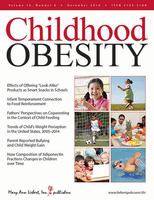
Childhood Obesity
Scope & Guideline
Advancing solutions for a healthier future.
Introduction
Aims and Scopes
- Childhood Obesity Prevention and Management:
The journal publishes studies on various strategies for preventing and managing childhood obesity, including family-based interventions, community programs, and clinical approaches. - Socioeconomic and Environmental Influences:
Research exploring how social determinants of health, environmental factors, and socioeconomic status affect childhood obesity rates is a key focus. - Psychosocial and Behavioral Aspects:
The journal includes studies on the psychological and behavioral dimensions of childhood obesity, such as emotional eating, body image perceptions, and family dynamics. - Innovative Research Methodologies:
Methodologies such as randomized controlled trials, longitudinal studies, and scoping reviews are frequently employed to provide robust evidence in addressing childhood obesity. - Interdisciplinary Collaboration:
The journal encourages collaboration across disciplines, integrating insights from nutrition, psychology, public health, and education to foster holistic approaches to tackle childhood obesity.
Trending and Emerging
- Impact of Social Determinants of Health:
There is an increasing emphasis on understanding how factors such as income, race/ethnicity, and neighborhood environment influence childhood obesity outcomes, reflecting a broader public health perspective. - Technology and Digital Health Interventions:
Research on the efficacy of digital health tools, including mobile health applications and telehealth interventions, is on the rise, particularly in light of the COVID-19 pandemic and its impact on healthcare delivery. - Psychosocial Interventions:
Emerging studies are focusing on the role of mental health and psychosocial factors in childhood obesity, emphasizing the importance of addressing emotional and psychological well-being in treatment. - Community-Based Participatory Research:
There is a growing trend toward community engagement in research, highlighting the importance of involving communities in designing and implementing obesity interventions. - Longitudinal Studies of Childhood Obesity Trajectories:
Research tracking obesity trajectories over time is gaining attention, providing insights into early-life determinants and long-term outcomes of childhood obesity.
Declining or Waning
- Traditional Dietary Interventions:
Research that solely focuses on traditional dietary interventions without considering behavioral or environmental factors is becoming less prominent as a more holistic approach is favored. - Generalized Physical Activity Recommendations:
Studies offering broad physical activity recommendations without tailoring them to specific populations or contexts are declining in favor of more targeted and nuanced research. - Static Approaches to Obesity Treatment:
There is a noticeable decrease in publications that advocate for static, one-size-fits-all obesity treatment models, as evidence grows in support of individualized and adaptive treatment strategies.
Similar Journals

ERNAHRUNGS UMSCHAU
Advancing Knowledge in Dietetics and Public HealthERNAHRUNGS UMSCHAU is a vital publication in the fields of nutrition and dietetics, established in Germany and published by UMSCHAU VERLAG. Since its inception in 1973, this journal has served as a platform for disseminating research and insights on dietary practices, nutritional science, and public health approaches related to nutrition. Although it currently holds a Q4 ranking in both Medicine (miscellaneous) and Nutrition and Dietetics, signaling its emerging status within these categories, it remains an essential resource for professionals, researchers, and students seeking to enhance their understanding of dietary impacts on health. With a broad scope covering various aspects of nutritional science, ERNAHRUNGS UMSCHAU contributes to the ongoing dialogue in public health and nutrition, offering valuable perspectives that inform practice and policy. The journal is published in both print and digital formats, ensuring accessibility to its diverse readership.

PEDIATRIC RESEARCH
Innovating solutions for child health challenges.Pediatric Research, published by SpringerNature, is a leading journal in the field of pediatrics, perinatology, and child health. With an impressive impact factor reflecting its stature, this journal has been integral in advancing research since its inception in 1967. With a placement in the Q1 category for Pediatrics, Perinatology, and Child Health, and ranking #30 out of 330 in Scopus, Pediatric Research is recognized for its rigorous peer-review process and commitment to disseminating vital findings that impact child health globally. The journal primarily serves as a platform for researchers, healthcare professionals, and students dedicated to exploring innovative solutions to pediatric health challenges. Although not an open-access journal, it provides valuable insights and research that contribute significantly to improving health outcomes for children. Based in the United States, with a global reach, Pediatric Research remains at the forefront of pediatric innovation and scholarship through 2024 and beyond.
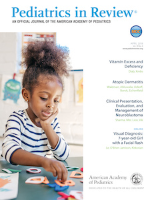
PEDIATRICS IN REVIEW
Advancing pediatric knowledge for healthier futures.PEDIATRICS IN REVIEW, published by the American Academy of Pediatrics, is a prominent journal dedicated to advancing the understanding of child health and pediatric medicine. With an ISSN of 0191-9601 and E-ISSN 1526-3347, this journal offers a vital resource for pediatricians, researchers, and healthcare professionals seeking to stay informed about the latest trends and findings in the field. Though it operates under a subscription model, it maintains a reputable standing with a category quartile ranking of Q3 in Pediatrics, Perinatology, and Child Health as of 2023, reflecting its impactful contributions to the literature. Spanning over three decades since its inception in 1986, PEDIATRICS IN REVIEW continues to publish insightful reviews and articles that facilitate continuous learning and professional development. Its thoughtful coverage and established reputation make it an essential read for those engaged in pediatric research and clinical practice.

Turkish Archives of Pediatrics
Your Gateway to Pediatric Research Excellence.Turkish Archives of Pediatrics is a prominent Open Access journal dedicated to advancing the field of pediatrics, published by AVES. Launched in 2019, the journal provides an essential platform for researchers, clinicians, and students to disseminate innovative research findings, reviews, and clinical studies focused on child health. Operating out of Turkey, this journal has carved out a notable position in the academic landscape, currently holding a Q3 quartile ranking in Pediatrics, Perinatology, and Child Health as of 2023. With a Scopus rank of #179 out of 330 in its category, the journal ensures significant visibility for its authors, contributing to a wider understanding of pediatric health issues. Its open access policy promotes unrestricted dissemination of vital pediatric research, making it accessible to a global audience and enhancing collaborative efforts across borders. Researchers and professionals looking to stay at the forefront of pediatric advances will find Turkish Archives of Pediatrics to be an invaluable resource.
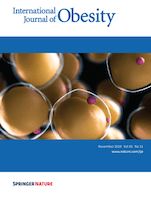
INTERNATIONAL JOURNAL OF OBESITY
Innovating Research to Combat ObesityINTERNATIONAL JOURNAL OF OBESITY, published by SpringerNature, stands as a premier multidisciplinary platform for research in the fields of Endocrinology, Diabetes and Metabolism, Nutrition and Dietetics, as well as Miscellaneous Medicine. With a remarkable impact, the journal is consistently positioned in the Q1 category across these critical areas, underscoring its significance in advancing the understanding of obesity and its related health outcomes. Established in 1977 and covering a broad spectrum of studies until 2024, it boasts a notable Scopus Rank reflecting its influential contributions to the scientific community, including a rank of 14 out of 140 in Nutrition and Dietetics. The INTERNATIONAL JOURNAL OF OBESITY is not just a repository of knowledge but a vital resource for researchers, clinicians, and students aiming to explore the complexities of obesity and develop evidence-based interventions. Despite not being an open-access journal, its rigorous peer-reviewed articles remain accessible to those within academic institutions, facilitating an essential dialogue among professionals dedicated to this critical global health issue.
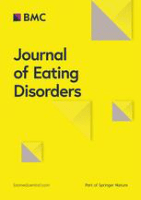
Journal of Eating Disorders
Empowering professionals with cutting-edge research.Journal of Eating Disorders, published by BMC, is a leading Open Access journal dedicated to advancing knowledge and understanding of eating disorders. With an ISSN of 2050-2974, it has been a valuable resource for researchers and practitioners since its inception in 2013. This journal resides in the prestigious United Kingdom and provides a platform for high-quality research, encompassing areas such as behavioral neuroscience, nutrition and dietetics, as well as psychiatry and mental health. Notably, it achieved an impressive Q1 ranking in Nutrition and Dietetics and holds a Q2 classification in both Behavioral Neuroscience and Psychiatry and Mental Health for the year 2023. With a robust Scopus ranking, including a 67th percentile in Psychiatry and Mental Health, the journal is committed to facilitating vital discourse and disseminating groundbreaking findings that cater to both academic and clinical settings. The wide-reaching impact of the research published within its pages makes it an essential tool for professionals, students, and anyone with an interest in understanding and addressing eating disorders.
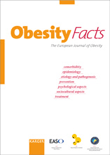
Obesity Facts
Championing multidisciplinary perspectives on obesity.Obesity Facts is a prestigious open access journal dedicated to advancing research and insights in the field of obesity, promoting a multidisciplinary approach to understanding its implications across social sciences and medical physiology. Published by KARGER since 2008, this journal has established itself as a crucial resource for researchers and practitioners, achieving a commendable impact factor reflective of its high-quality contributions. As of 2023, it holds a Q1 ranking in Health (social science) and a Q2 ranking in Physiology (medical), further underscoring its significance and influence in the academic community, with notable Scopus rankings of #37 in Health and #29 in Medicine. With an open access model since 2013, Obesity Facts ensures that groundbreaking research is readily available to the global scientific community and contributes to public health discourse, engaging a diverse audience of researchers, health professionals, and students keen on understanding obesity's complex phenomena.
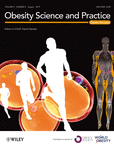
Obesity Science & Practice
Connecting Science and Practice in Obesity ManagementObesity Science & Practice is a prestigious, peer-reviewed journal dedicated to advancing knowledge and research in the fields of obesity, endocrinology, diabetes, metabolism, and nutrition. Published by Wiley, this journal has established itself as a vital resource for researchers, healthcare professionals, and students interested in the latest evidence-based practices and innovations in obesity management. With an impact factor that reflects its significance, and ranked in the Q2 category for both Endocrinology, Diabetes and Metabolism, and Nutrition and Dietetics in 2023, the journal aims to foster interdisciplinary collaboration and dissemination of cutting-edge research. Since its transition to Open Access in 2015, Obesity Science & Practice has become increasingly accessible, emphasizing the importance of making research findings available to a wider audience. This convergence of expertise and commitment to public health makes the journal an essential forum for advancing scholarship and practice in tackling widespread global health challenges.

Obesity
Advancing the Dialogue on Obesity ResearchObesity is a premier academic journal published by WILEY, dedicated to advancing knowledge in the fields of endocrinology, nutrition, and metabolism. With an impressive impact factor and ranking in the top quartile across multiple categories, including Q1 in Endocrinology, Diabetes and Metabolism, and Nutrition and Dietetics, this journal serves as a critical resource for researchers, clinicians, and policymakers. The journal facilitates the dissemination of innovative research findings spanning the biological, behavioral, and societal factors associated with obesity, offering Open Access options to ensure broad visibility and accessibility to its content. With converged years from 2006 to 2024, Obesity provides an invaluable platform for cutting-edge studies that contribute to the global understanding of obesity and its multifaceted implications for health and wellness. Located in Hoboken, New Jersey, this esteemed journal plays a pivotal role in shaping the dialogue around obesity, making it an essential read for anyone invested in tackling this pressing public health challenge.

European Journal of Geriatrics and Gerontology
Connecting researchers to tackle the challenges of aging.Welcome to the European Journal of Geriatrics and Gerontology, a peer-reviewed platform dedicated to advancing knowledge and research in the fields of geriatrics and gerontology. Published by GALENOS PUBL HOUSE, this journal serves as a critical resource for researchers, healthcare professionals, and students who are involved in the care, treatment, and study of elderly populations. Since its inception in 2019 and running through 2024, the journal aims to foster interdisciplinary collaboration and disseminate innovative research that addresses the unique challenges faced by older adults. With an ISSN of 2687-2625, the journal is classified in the Q4 quartile of the Geriatrics and Gerontology category, signifying its emerging influence within the academic community, despite its current Scopus ranking of #113 out of 116, reflecting a rich opportunity for growth and visibility. Although the journal is not open access, it maintains a commitment to scholarly rigor and quality. Engage with the European Journal of Geriatrics and Gerontology to contribute to and learn from the evolving discourse in aging research.